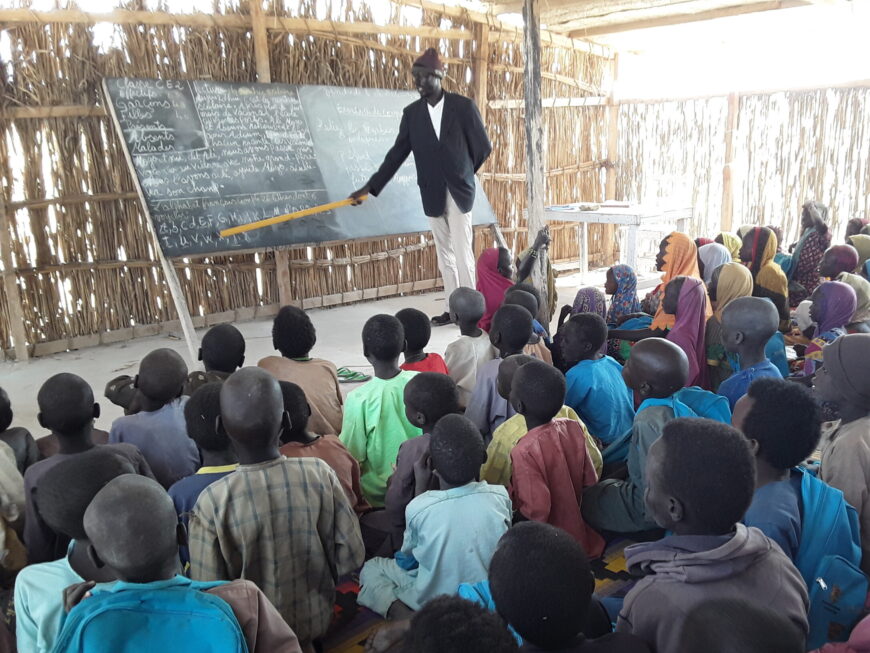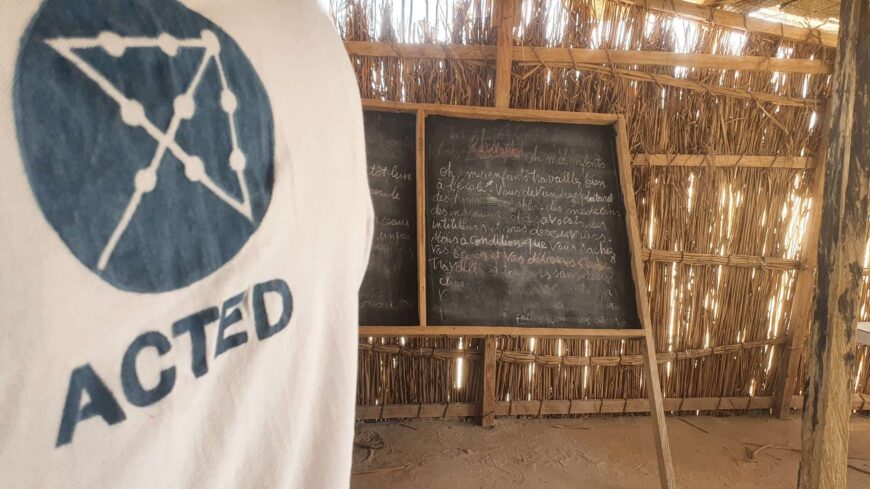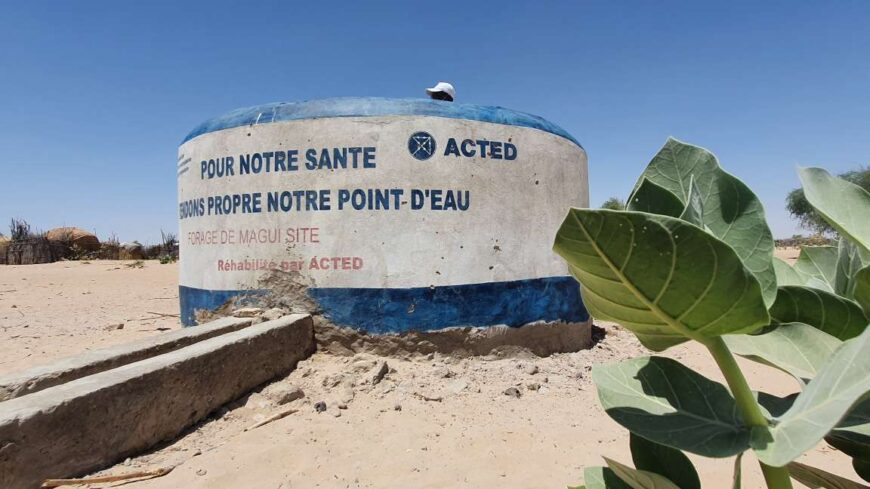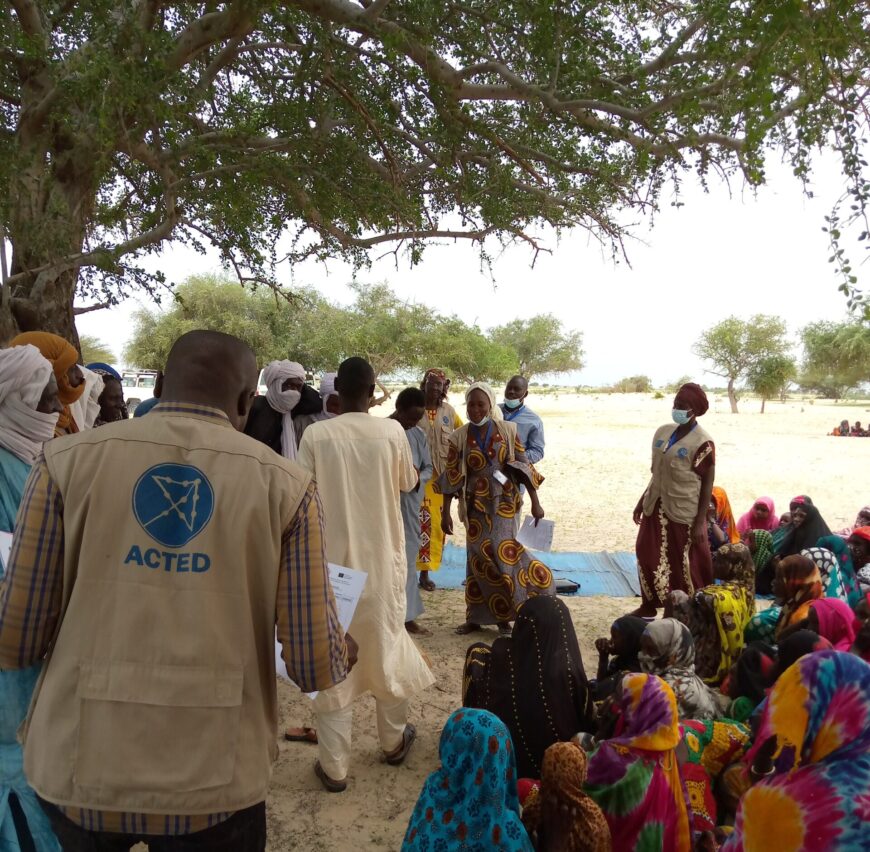Since 2015, Chad has been subject to attacks by non-state armed groups operating in the Lake Chad Basin. Since the end of 2020, security conditions have continued to deteriorate in the Lake Province, forcing the population of these localities to move and abandon their livelihoods. In December 2022, almost 239,576 internally displaced persons were registered. The Lake Province also faces devastating environmental events. Seasonal droughts and floods reduce the amount of usable land each year.
These multiple crises have put at risk food production, livelihoods and progressively affected the resilience of the Lake communities, who have been forced to leave their homes.
In the north of the Lake Province on the border with Niger, the department of Fouli has the highest number of internally displaced persons (IDPs). More than half of the displaced households have neither access to a clean water source nor to hygienic latrines when they arrived on the sites. Nearly half of the displaced persons are minors, and among them, approximately 145,621 children are of school age. This implies considerable educational needs, which unfortunately cannot be met by the existing local infrastructure. According to the Ministry of Education, three quarters of existing schools do not have toilets, and a large number of students do not have access to clean water.
To meet these needs and thanks to the support of the European Union, ACTED is supporting IDPs through a multi-sectoral approach, focusing on access to education.
Ensuring continuity of schooling for children in emergency situations
In seven IDP sites, ACTED is reinforcing access to education for primary school girls and boys by implementing Temporary Learning and Child Protection Spaces (ETAPE). On two of the largest IDP sites, Magui and Koulougou 1, two ETAPEs have been built to welcome children.
These schools offer both formal and non-formal education for more than 1800 displaced children. The non-formal programme is for teenagers who have been out of school for several years. It includes classical education, a literacy programme and a more practical aspect, with the learning of a trade, to promote the professional integration of young people.

To guarantee quality teaching, the schools were equipped with the necessary furniture, the community teachers who provide the lessons received training and teaching kits (dictionary and other teacher’s manuals, reading books, teacher’s guide, etc.), and the children received school materials (notebook, pen, slate, mathematical instruments, etc.) and textbooks.

In addition, ACTED is setting up recreational areas in each of the schools built, so that children can have fun, play, learn, and express themselves. These recreational activities allow the children to socialize and to have a safe and supervised space, especially during the holiday periods.
Providing coverage of needs through a multi-sectoral approach
In order to ensure the sustainability of access to education for these children, ACTED has set up an integrated approach to support several sectors directly linked to schooling.
Food insecurity in the Lake Province is the first factor of humanitarian needs and one of the major causes of school dropout. Thus, ACTED has set up, in partnership with the World Food Programme, school canteens within its ETAPEs.
Pursuing this integrated approach, ACTED has also implemented the construction and rehabilitation of boreholes close to the schools. These installations allow both to meet the water needs of all the communities in the targeted IDP sites, and also to facilitate access to water for children, thus preventing them from returning home to drink and leaving school.

In addition, to ensure healthy reception conditions, ACTED has built and rehabilitated latrines and hand washing points in the ETAPEs. Sensitizations to good hygiene practices have also been carried out throughout the project.
Finally, parents’ associations have been set up to involve parents in their children’s education and to promote continuity of study.
Promoting girls' schooling and providing gender equality
As part of the programme, particular attention has been paid to the schooling of girls, who in the region are on average half as likely as boys to go to school. Girls are particularly at risk of early marriage and gender-based violence, which prevent them from continuing their education. They are also constrained by domestic chores, which are often assigned to them. These inequalities later affect their empowerment.
ACTED organizes sensitization sessions for parents of schoolchildren and for the whole displaced population on the importance of schooling, notably as a means to avoid the recruitment of children into armed groups, and on the protection of children, especially girls. In schools, ACTED has built single-sex latrines and distributed 500 menstrual hygiene kits, including reusable sanitary towels, to enable girls to continue attending school during their menstruation.

Ensuring the protection of children
Displaced mainly because of attacks by armed groups, these children may have suffered violence, neglect, or witnessed traumatic scenes, just like their parents.
To address the particular needs of families in displacement situations, ACTED has planned the implementation of psychological first aid training for community teachers, so that they are able to identify and assist students in need of support.
To implement these activities, ACTED has chosen to work with APSELPA, a local association specialized in protection. It will mobilize two psychologists to deliver the trainings, during which two teachers will be designated as child protection focal points, in order to provide psychosocial support for children. A comprehensive response will be provided to children in need of protection. One specialist per site will be dedicated to the detection of protection cases (violence, trauma, family separation, gender-based violence, etc.) and to the psychological follow-up of these children, in collaboration with the teachers. The project plans to assist 100 children. If more protection cases are identified, they can be referred to other humanitarian actors in the region.
This EU-funded programme addresses the basic needs of IDPs in the Fouli department through an integrated approach, focusing on access to education for children and, more globally, through support to the resilience of IDPs. ACTED has adapted its assistance throughout the project, and has fully integrated the cross-cutting, but no less important, issues of environment and gender vulnerabilities, thus maximizing its impact on vulnerable populations.
